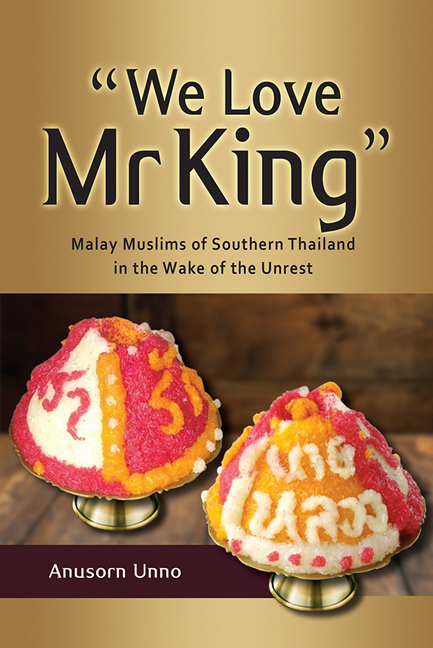Book contents
- Frontmatter
- Dedication
- Contents
- List of Tables and Figures
- Acknowledgements
- Main “Dramatis Personae”
- Introduction
- Chapter 1 Guba
- Chapter 2 Winds of Change
- Chapter 3 Subjectivities on the Rise
- Chapter 4 The Clashes
- Chapter 5 Living Lives with Multiple Subjectivities
- Chapter 6 Engaging with the Sovereigns
- Conclusion: Sovereignty in Crisis
- Bibliography
- Index
- About the Author
Conclusion: Sovereignty in Crisis
Published online by Cambridge University Press: 12 February 2019
- Frontmatter
- Dedication
- Contents
- List of Tables and Figures
- Acknowledgements
- Main “Dramatis Personae”
- Introduction
- Chapter 1 Guba
- Chapter 2 Winds of Change
- Chapter 3 Subjectivities on the Rise
- Chapter 4 The Clashes
- Chapter 5 Living Lives with Multiple Subjectivities
- Chapter 6 Engaging with the Sovereigns
- Conclusion: Sovereignty in Crisis
- Bibliography
- Index
- About the Author
Summary
This book is about how the Malay Muslims of Guba, a village in Thailand's Deep South, live their lives in the wake of the ongoing insurgency that was reinvigorated in 2004. It argues that the unrest is the effect of the way in which different forms of sovereignty converge around the residents of this region. It also argues that the residents at the same time have cultivated themselves and obtained and enacted agency through the sovereigns. As such, rather than asking why the violence is increasing and who is behind it, like most scholarly works on the topic, I examine how different forms of sovereignty impose their subjectivities on the residents, how they have converged in so doing and what tensions have followed, and how people have dealt with these tensions and cultivated themselves and obtained and enacted agency through the sovereigns.
The question of sovereignty in southern Thailand dates back for many centuries. Between the fourteenth and eighteenth centuries, the question revolved around the ambiguity of sovereignty over the region. On the one hand, the region was composed of Malay sultanates, whose sovereignty had to be realized. On the other hand, the region was regarded by successive Siamese kingdoms as vassal states whose sovereignty needed to be recognized as well. A suzerain-vassal relationship was attempted, in order to address the ambiguity, but to no avail, resulting in wars between the Malay sultanates and Siam that recurred over the course of centuries. The question of ambiguous sovereignty was put to an end when the sultanates were incorporated into Siam in a process that began in the late eighteenth century and was only completed at the turn of the twentieth century. Now, Siamese sovereignty was the only form of sovereignty to be realized over the clearly demarcated territory.
However, singular sovereignty over the territory did not put the question to an end. Rather, it generated a new question and a new form of conflict — a question of sovereignty over subjectivity, which led to the emergence of separatist movements. That is to say, although Siam's nation-building project was first launched inclusively, it was later carried out exclusively, associating the nation with Thai ethnicity and Buddhism at the expense of other ethnicities and religions.
- Type
- Chapter
- Information
- "We Love Mr King"malay Muslims of Southern Thailand in the Wake of the Unrest, pp. 236 - 240Publisher: ISEAS–Yusof Ishak InstitutePrint publication year: 2018



